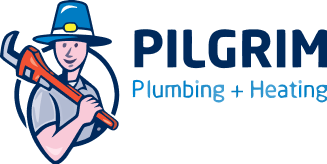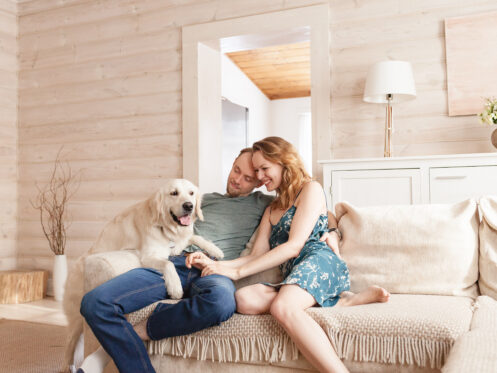Pet ownership is one of the most rewarding and widespread activities in American homes. According to statistics from Forbes and the Pet Industry Association (PIA), approximately 82 million U.S. households have at least one pet. A survey from the Pew Research Center also showed that a majority of people view their pets as essential members of the family. As much as you may love their animal companions, however, there are side effects of pet ownership that can impact every component of your heating and cooling system. Keeping a furry or feathered friend in your home also brings the responsibility of making sure your HVAC system remains in good shape. A look at the top HVAC maintenance tips for pet owners can provide much-needed guidance for keeping your household comfortable, safe, and clean.
How Pets Can Affect HVAC Systems in Homes
Pets can impact HVAC systems in notable ways. Common causes of HVAC problems include pet dander, pet hair or fur, humidity or bacteria from pet activities, and chemicals from pet products.
Pet Dander
Pet dander refers to a type of material shed from the bodies of animals that have fur, hair, or feathers. The material may consist of tiny skin particles, proteins, and secretions or oils. Once dander becomes airborne, it can circulate easily through your HVAC system and act as an allergen that exacerbates respiratory issues. The distribution of pet dander and similar particles can significantly reduce the indoor air quality of your home.
Pet Hair or Fur
In addition to microscopic dander, your pet can also shed strands of hair or fur itself. Pet hair can clog filters and ducts, resulting in obstructions that cause the system to work harder and prematurely wear down its components. Hair can also capture and trap other allergens that cause air quality issues over time.
Pet Urine or Waste
Pet urine or waste may contain ammonia, bacteria, and acids that cause unpleasant odors to linger in the home. Even if urine dries, it can break down into airborne particles that circulate through your HVAC system and trigger problems such as allergies or asthma.
Chemicals From Pet Products
Animal care products like shampoos, flea treatments, air fresheners, and grooming sprays may contain byproducts known as volatile organic compounds (VOCs). These harmful substances dissolve readily into air at room temperature and can then disperse through your home via HVAC ducts, registers, and vents.
Top HVAC Maintenance Tips for Pet Owners
There are a range of useful HVAC recommendations for any household with pets. These tips include changing the air filter, ensuring a safe temperature and humidity level, investing in an air purifier, practicing good grooming habits, and scheduling professional HVAC maintenance.
Change Air Filters Regularly
One of the most straightforward maintenance tips for pet owners is to switch out the HVAC filter consistently. The standard recommendation is to change the air filter once every three months, but some pet owners switch out the filter up to once per month. Air filters help trap dirt, debris, and other airborne particles before they can reenter the HVAC system and disperse through the home. Changing the filter is important since a clogged or dirty one can impact the performance of your HVAC system and lower the air quality of your residence.
It’s also important to use a filter with a minimum efficiency reporting value (MERV) rating that matches the size and style of your HVAC equipment. The correct MERV rating provides the best balance between airflow and filtration over the lifetime of the device. Some pet owners also opt for high-efficiency particulate air (HEPA) filters designed to remove at least 99.7% of contaminants like dust or pollen with a size as small as 0.3 microns. If you are unsure about where to start, an HVAC technician can help you choose the right HEPA filter and correct MERV rating for your HVAC unit.
Leave Vents Unobstructed
In addition to changing filters, it’s also essential to keep all vents and registers unobstructed. A blocked vent can restrict airflow, causing your HVAC system to overwork to maintain a consistent temperature. This can prematurely wear down your HVAC unit and drive up energy costs. Identify all vents and registers in your home and ensure they remain open. Remove any furnishings from blocking them. If you have a pet prone to sitting on a floor vent, ask your HVAC technician about installing a vent grille that enables airflow while discouraging pets from sitting directly on top of the vents.
Optimize Humidity Levels
Humidity refers to the amount of water vapor or moisture in the air. According to the Environmental Protection Agency (EPA), relative indoor humidity should remain between 30% and 50%. Indoor humidity that exceeds 60% can increase the risk of mold growth and pet discomfort. Some pets also naturally produce moisture by drinking and panting. An HVAC technician can use a hygrometer to test the humidity level and install a dehumidifier if needed.
Install an Air Purifier
An air purifier can help keep odors, pollutants, and contaminants from floating throughout your home. Styles of purifiers include activated carbon and UV light. You can also consult with your HVAC technician about purifiers with HEPA filtration to reduce the strain on your heating and cooling system.
Visit the Pet Groomer
Regular grooming can reduce the amount of dander and hair that your pet sheds inside the home. Bathing and brushing your pet outside can also help keep the indoor environment hygienic and clean. Grooming can improve your pet’s overall health and ensure that your interior space remains fresh.
Vacuum Carpets and Upholstery
Some breeds shed hair daily regardless of consistent grooming. Dander and dead skin cells can also flake from your pet on a routine basis. These particles settle in your carpets or upholstery and can eventually end up in your HVAC ducts. By vacuuming consistently, you can minimize the particulate matter that winds up in your system. Many vacuums are compatible with HEPA filter attachments for more thorough cleaning.
Consider Duct Cleaning
If you have multiple pets or have not had your system inspected in a while, consider scheduling a duct cleaning. During the process, a professional uses specialized equipment to clear and sanitize the major pathways of your ductwork.
Schedule Professional HVAC Maintenance
Routine professional maintenance can prevent unexpected breakdowns and help ensure that your HVAC system remains functional. Schedule seasonal maintenance before summer and winter to prepare your system for intense usage. During maintenance, a technician can check for mechanical wear and tear, clean coils, identify any thermostat problems, and conduct minor repairs. Regular maintenance is the most practical way to extend the lifespan of your system.
Rely on Your Local Experts
Family pets can alter the indoor environment of a household. By remaining proactive about HVAC maintenance, you can protect the well-being of everyone in your residence. At Pilgrim Plumbing, Inc., we provide HVAC maintenance services for homes in Norwell, Hingham, Rockland, Whitman, Pembroke, and the surrounding areas. We also offer inspections and repairs for your heating and cooling system. In addition, our team can perform upgrades to ensure that both you and your pets live comfortably, whether you have a ductless system or ducted system. Regardless of the issue, we are here to assist you. Contact us at Pilgrim Plumbing, Inc. today for all of your heating, cooling and indoor air quality needs.


